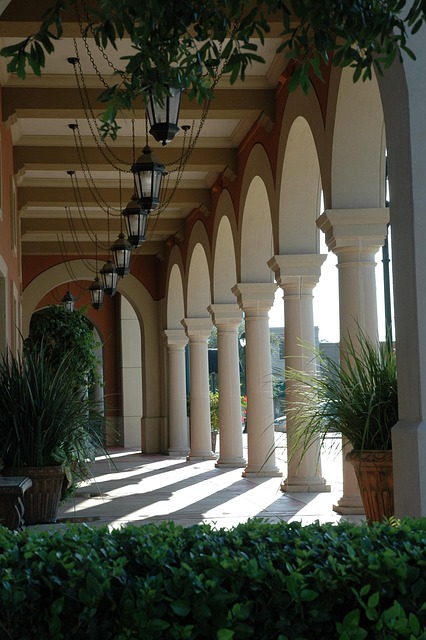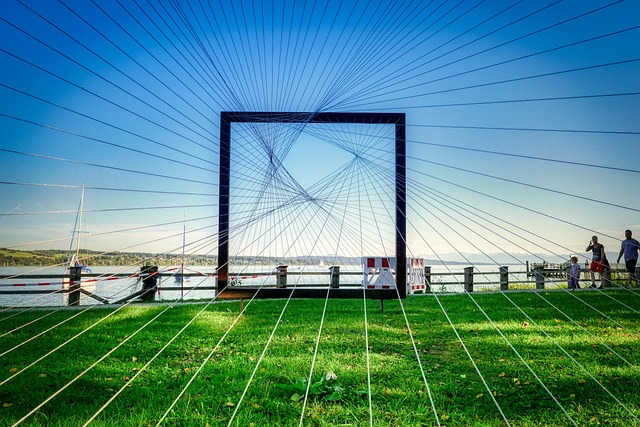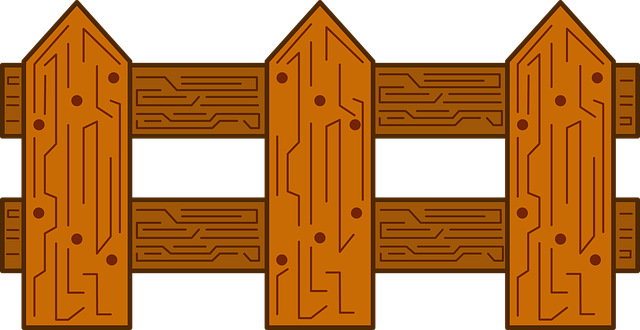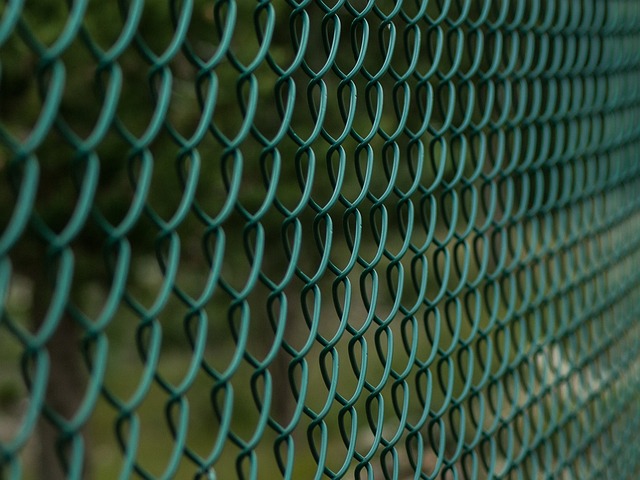When considering fence installation in Houston, understanding local needs is crucial due to diverse climates and landscapes. Fence Builders Houston offers expert guidance on various fencing solutions—from wood to metal—and custom designs, catering to residential or commercial properties……..
Category: fence contractors
Fence-Contractors: Understanding Their Significance and Impact
Introduction
In today’s fast-paced world, the role of fence-contractors has become increasingly vital in shaping the physical landscape of our communities, cities, and nations. As we continue to urbanize and develop new infrastructure, the demand for skilled professionals who can design, install, and maintain fences has never been higher. In this comprehensive article, we will delve into the world of fence-contractors, exploring their history, significance, global impact, technological advancements, policy and regulation, challenges, case studies, and future prospects.
Understanding Fence-Contractors
Fence-contractors are specialized professionals who design, install, maintain, and repair fences for residential, commercial, and industrial properties. These skilled workers possess a unique combination of technical expertise, creativity, and problem-solving abilities to ensure that the fencing solutions they provide meet the specific needs of clients.
Historically, fence-contractors have played a crucial role in shaping our built environment. From ancient civilizations to modern times, fences have served as symbols of protection, division, and identity. In recent decades, the industry has undergone significant transformations, driven by advances in materials science, technological innovations, and shifting societal values.
Global Impact and Trends
The global fence-contractor market is a multi-billion-dollar industry, with a diverse range of companies operating across various regions. The United States, China, Japan, Germany, and the United Kingdom are among the largest markets for fence-contractors, driven by urbanization, infrastructure development, and security concerns.
Several trends are shaping the future of the industry:
- Sustainability: As governments and consumers prioritize environmental sustainability, fence-contractors are incorporating eco-friendly materials, designs, and installation methods to reduce carbon footprints.
- Smart Fences: The integration of technology into fencing solutions is revolutionizing the industry, enabling real-time monitoring, security enhancements, and smart energy management.
- Globalization: International trade agreements and cross-border investments are driving demand for fence-contractors who can navigate complex regulatory environments and supply chains.
Economic Considerations
The economic landscape surrounding fence-contractors is characterized by:
- Market Dynamics: The industry operates in a highly competitive market, with small, medium-sized enterprises (SMEs) and multinational corporations vying for contracts.
- Investment Patterns: Governments, private investors, and companies are investing heavily in infrastructure development, driving demand for fence-contractors.
- Economic Systems: Fence-contractors play a critical role in economic systems, providing employment opportunities, contributing to GDP growth, and supporting local businesses.
Technological Advancements
Recent technological advancements have transformed the industry:
- Automated Fencing Systems: The integration of automation technology has improved installation efficiency, reduced labor costs, and enhanced security features.
- Sustainable Materials: Advances in materials science have led to the development of eco-friendly fencing solutions, such as recycled plastic and solar-powered fences.
- Digital Design Tools: Cloud-based design software has streamlined the design process, enabling fence-contractors to create customized solutions quickly and accurately.
Policy and Regulation
Fence-contractors operate within a complex regulatory environment, governed by:
- Building Codes: Local building codes and zoning regulations dictate the type of fencing permitted in specific areas.
- Environmental Laws: Environmental laws and regulations require fence-contractors to adhere to sustainability standards and minimize environmental impact.
- Labor Regulations: Labor laws and employment regulations govern working conditions, wages, and benefits for fence-contractor employees.
Challenges and Criticisms
Fence-contractors face several challenges:
- Skills Shortage: The industry struggles with a shortage of skilled workers, making it difficult to meet growing demand.
- Regulatory Complexity: Fencing regulations vary across regions, creating complexity and uncertainty for fence-contractors.
- Environmental Concerns: Fence-contractors must balance environmental considerations with the need for effective security solutions.
Case Studies
Three notable case studies illustrate successful applications of fence-contractors:
- Smart City Infrastructure: A major urban development project in a coastal city incorporated smart fencing solutions to enhance security, reduce energy consumption, and improve public safety.
- Rural Agricultural Fencing: A family-owned farm in the Midwest implemented eco-friendly fencing systems to protect crops from pests and wildlife while minimizing environmental impact.
- Industrial Security: A leading manufacturing company invested in high-security fencing solutions to safeguard its facilities and intellectual property.
Future Prospects
The future outlook for fence-contractors is promising:
- Growth Areas: Emerging markets, such as Asia-Pacific and Latin America, offer significant growth opportunities.
- Emerging Trends: The integration of artificial intelligence, the Internet of Things (IoT), and biotechnology will shape the industry’s future.
- Strategic Considerations: Companies must adapt to changing market conditions, invest in innovation, and prioritize sustainability.
Conclusion
Fence-contractors play a vital role in shaping our built environment, and their significance extends beyond mere functionality. As the world continues to urbanize and develop new infrastructure, the demand for skilled fence-contractors will only continue to grow. By understanding the industry’s complexities, trends, and challenges, we can better position ourselves for success in this exciting and rapidly evolving field.
FAQ Section
Q: What is the average cost of a typical fence installation?
A: The cost varies depending on materials, size, and location, but averages around $3,000 to $5,000 per property.
Q: How do I choose the right fence contractor for my project?
A: Research local companies, read reviews, ask for referrals, and verify licenses and insurance before selecting a contractor.
Q: What are some common mistakes to avoid when installing a fence?
A: Ignoring zoning regulations, failing to obtain necessary permits, and neglecting proper drainage can lead to costly complications.
Expert Fencing Installation: Your Guide to Houston’s Top Services
When looking for fencing services in Houston, understanding your specific needs is crucial. Whether residential or commercial, Fence Company Houston experts offer tailored solutions like wood, vinyl, or chain-link fences for homes, and industrial-grade security measures for businesses. Choose reputa…….
Fence Builders Houston: Expertise in Crafting Top-Rated Privacy Fences
Privacy fences, installed by top-rated Fence Builders Houston, offer homeowners enhanced security, peace of mind, and improved outdoor aesthetics. Using high-quality materials like treated wood or vinyl, these experts craft tailored solutions from modern to traditional styles. Gates Fences Houston s…….
Expert Fence Installation Houston: Unlocking Privacy and Aesthetics
Privacy fences are essential for Houston properties, enhancing security and curb appeal. Top-rated Fence Installation Houston contractors specialize in tailored guidance on materials, styles, and designs, integrating seamlessly with diverse landscapes and local regulations. They offer durable option…….
Custom Fences in Houston: Experts Guide Your Fencing Needs
When looking for a fence in Houston, align your choice with specific needs like privacy, security, or aesthetic appeal. Fence Builders Houston offer custom designs, from wood to metal, enhancing curb appeal and defining spaces. Consider material durability, maintenance, and personal preference when…….
Enhancing Garden Ambiance: Partnering with Fence Contractors for Elegant and Functional Designs
When considering the enhancement of your outdoor space through fencing, a skilled fence contractor is key to achieving both functional and aesthetic goals. These professionals offer tailored solutions by assessing your property's unique conditions and understanding your vision for a design that…….
Choosing Your Fence: Durability, Costs, and Custom Design with Wood, Metal, and Vinyl
When choosing a fence for your property, consider the balance between durability, aesthetic appeal, and maintenance. Wood fencing offers a natural, customizable look but requires regular upkeep to prevent decay and pests. Metal options like iron or aluminum are durable and low-maintenance, offering …….
Securing Pets Safely: A Homeowner’s Guide to Pet-Friendly Fencing with Expert Fence Contractors
Choosing a pet-friendly fence involves selecting durable and low-maintenance materials like vinyl or chain link with PVC coating to withstand pets' tendency to dig or chew. A skilled fence contractor conducts a thorough assessment of your property and your pet's characteristics to design …….
Enhance Home and Business Security with Expert-Installed Fence Solutions
A professional fence contractor plays a vital role in fortifying properties with security fences that act as the first line of defense against intruders. These contractors offer customized solutions incorporating anti-climb measures, motion sensors, and CCTV systems to provide comprehensive securit…….
Restoring Property Boundaries Safely: A Homeowner’s Guide to Choosing Reliable Fence Contractors for Repairs
When a fence sustains damage from aging, storms, or vandalism, immediate repair is necessary to maintain property boundaries and security. Engaging an experienced fence contractor with a solid local reputation and adherence to regulations is key for effective restoration. The right contractor offers…….









